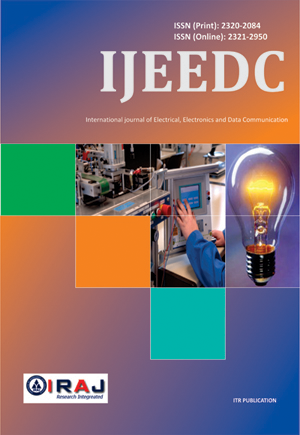Publish In |
International Journal of Electrical, Electronics and Data Communication (IJEEDC)-IJEEDC |
 Journal Home Volume Issue |
||||||||
Issue |
Volume-2,Issue-8 ( Aug, 2014 ) | |||||||||
Paper Title |
Protocol Design For Neighbor Discovery In AD-HOC Networks | |||||||||
Author Name |
Muhammed Irfan S, Shamseer Ali, Jose Alex Mathew | |||||||||
Affilition |
II year M.Tech, DCN is with the Electronics and Communication Department, P.A. College of Engineering, Under VTU Department of Electronics and Communication, P.A. College of Engineering, Under VTU, Mangalore. Department of Electronics and Communication , P.A. College of Engineering, Under VTU | |||||||||
Pages |
71-74 | |||||||||
Abstract |
Neighbour Discovery (ND) is a basic and crucial step for initializing wireless ad hoc networks. A fast, precise, and energy-efficient ND protocol has significant importance to subsequent operations in wireless networks. However, many existing protocols have high probabilities to generate idle slots in their neighbour discovering processes, which prolongs the executing duration, and thus compromises their performance. We propose a novel randomized protocol FRIEND, a pre- handshaking neighbour discovery protocol, to initialize synchronous full duplex wireless ad hoc networks. By introducing a pre-handshaking strategy to help each node be aware of activities of its neighbourhood, we significantly reduce the probabilities of generating idle slots and collisions. Moreover, with the development of single channel full duplex communication technology [1, 2], we further decrease the processing time needed in FRIEND, and construct the first full duplex neighbour discovery protocol. Our theoretical analysis proves that FRIEND can decrease the duration of ND by up to 68% in comparison to the classical ALOHA-like protocols [3, 4]. In addition, we propose HD-FRIEND for half duplex networks and variants of FRIEND for multi-hop networks and duty cycled networks. Both theoretical analysis and simulation results show that FRIEND can adapt to various scenarios, and significantly decrease the duration of ND. | |||||||||
| View Paper | ||||||||||